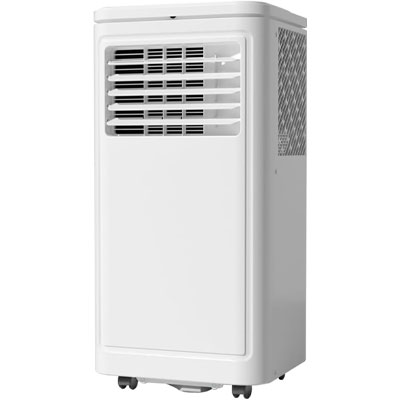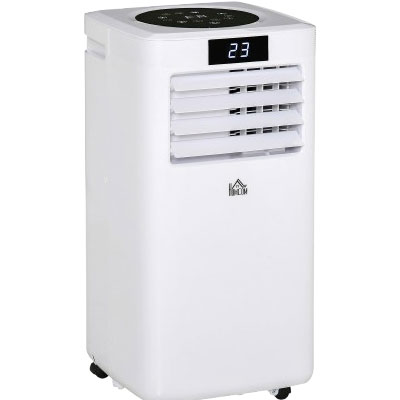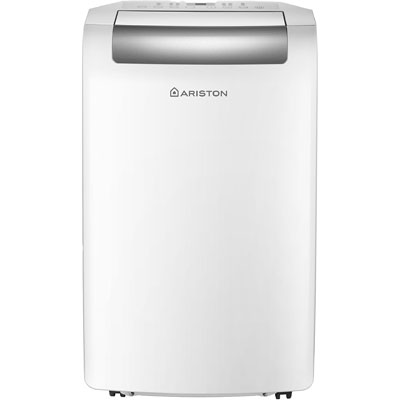Is it worth buying air conditioning for your home, or is it a waste of money?
The UK is heating up, but is it actually worth installing air conditioning? We asked a team of specialists

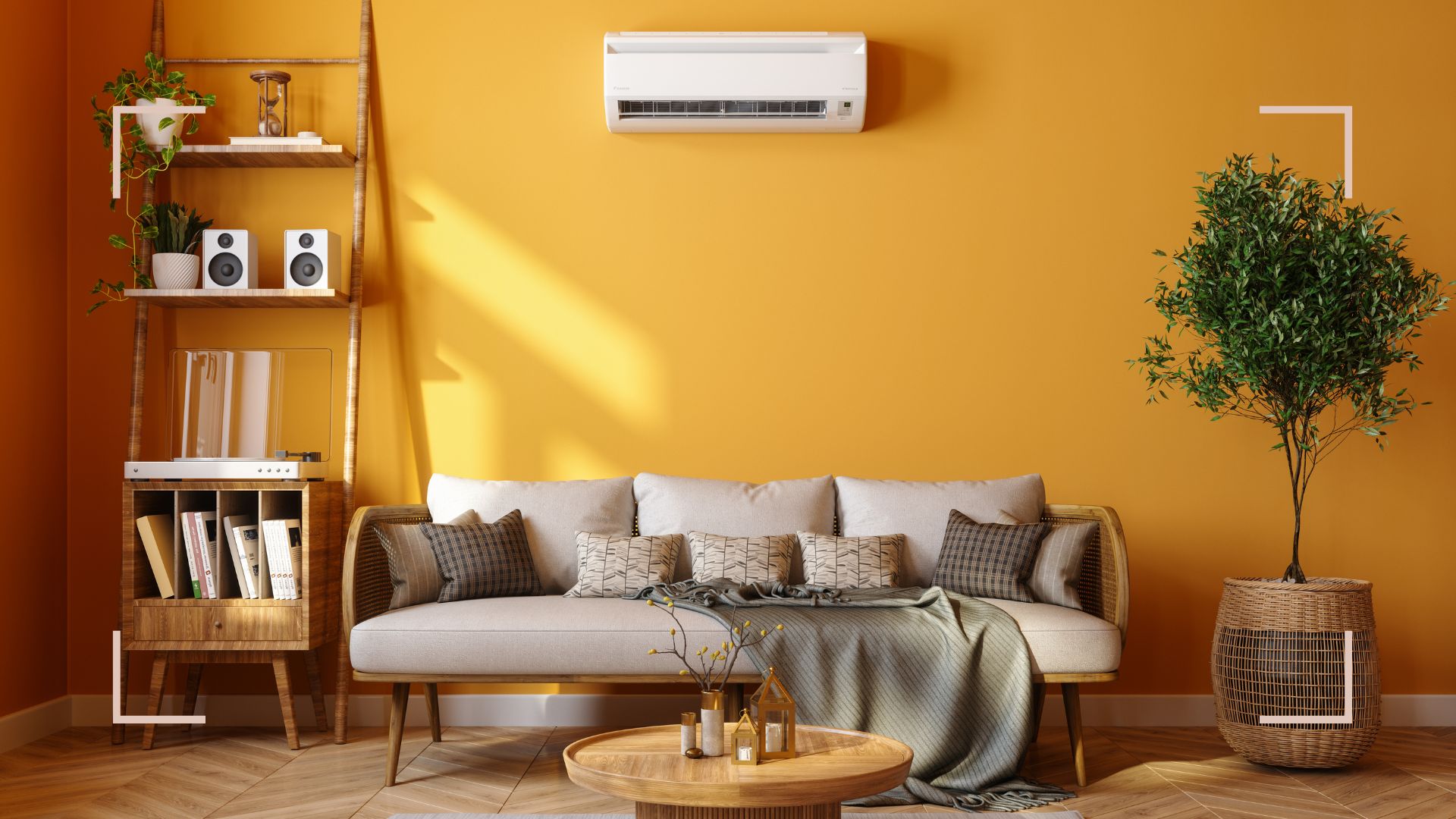
There's no getting away from it – the UK is heating up and our homes were not built for the high temperatures, which are widely believed to be the new norm.
For this reason, many homeowners are now taking their efforts to cool down a room way more seriously and considering investing in home air conditioning units, but while heatwaves are certainly becoming more regular, is the cost of buying, installing and running one of these systems really worth it?
We've consulted some of the top experts in the field to get their opinions on whether air conditioning is worth it in the UK. Also, to find out which types are best for British homes.
Is air conditioning worth it in the UK?
The answer to this question is largely determined by how much you are going to spend on your air conditioning and how often you plan on using it. For example, if you are only wanting to know how to keep a bedroom cool, a built-in AC unit might not be for you – trying a savvy cooling window hack might suffice.
"In the UK, air conditioning typically costs between £3,000 and £10,000, so it’s not a minor investment," picks up Martyn Fowler, founder at Elite Renewables. "Portable units are more affordable. But with the Met Office’s latest report confirming that hotter summers are here to stay, more homeowners are deciding it’s worth it. We’ve seen a sharp rise in enquiries from people looking to install AC for the first time."
"Our summers are getting hotter, with the Met Office reporting record-breaking temperatures in recent years, and that’s leaving many UK homes struggling to cope," adds Stephen Day, operations manager at iHeat.
"Whether it’s 'worth it' financially comes down to how much you value comfort, sleep and productivity during those hot spells. For example, if you’re in a modern, well-insulated home and only feel the heat for a few days each year, you might be fine with basic measures like fans or shutters," continues Stephen.
Sign up to our free daily email for the latest royal and entertainment news, interesting opinion, expert advice on styling and beauty trends, and no-nonsense guides to the health and wellness questions you want answered.
"But if you live in a south-facing flat, a top-floor apartment, or a property with large windows that trap heat, air conditioning can genuinely transform your comfort, and even your wellbeing."

Founder of Elite Renewables, Martyn Fowler is one of the UK's leading renewable technology experts, working with heat pumps for the last two decades. His passion for decarbonisation matched with a deep technical experience of the technology make him one of the industry's go-to experts for all things renewable.

Stephen Day is the Operations Manager at iHeat, with over a decade of experience as a qualified heating engineer and home cooling expert. He specialises in efficient, modern solutions for heating and air conditioning across the UK.
Which types of air conditioning are best for UK homes?
There are lots of different types of air conditioning, so it really pays to do a little bit of research to ensure you are spending your money on the right system for you. After all, it has been proven that heat makes you tired, and no one needs that.
"Split systems are the most popular choice for UK homes," reveals Martyn Fowler. "You have one indoor unit and one outdoor unit, making them efficient and quiet. Most people find they offer the best value for regular use without needing a full-home system.
"If you want to cool multiple rooms, a multi-split set-up connects several indoor units to one outdoor compressor," continues Martyn. "It gives you separate temperature control in each room, which helps save energy in the home. These are ideal for larger homes."
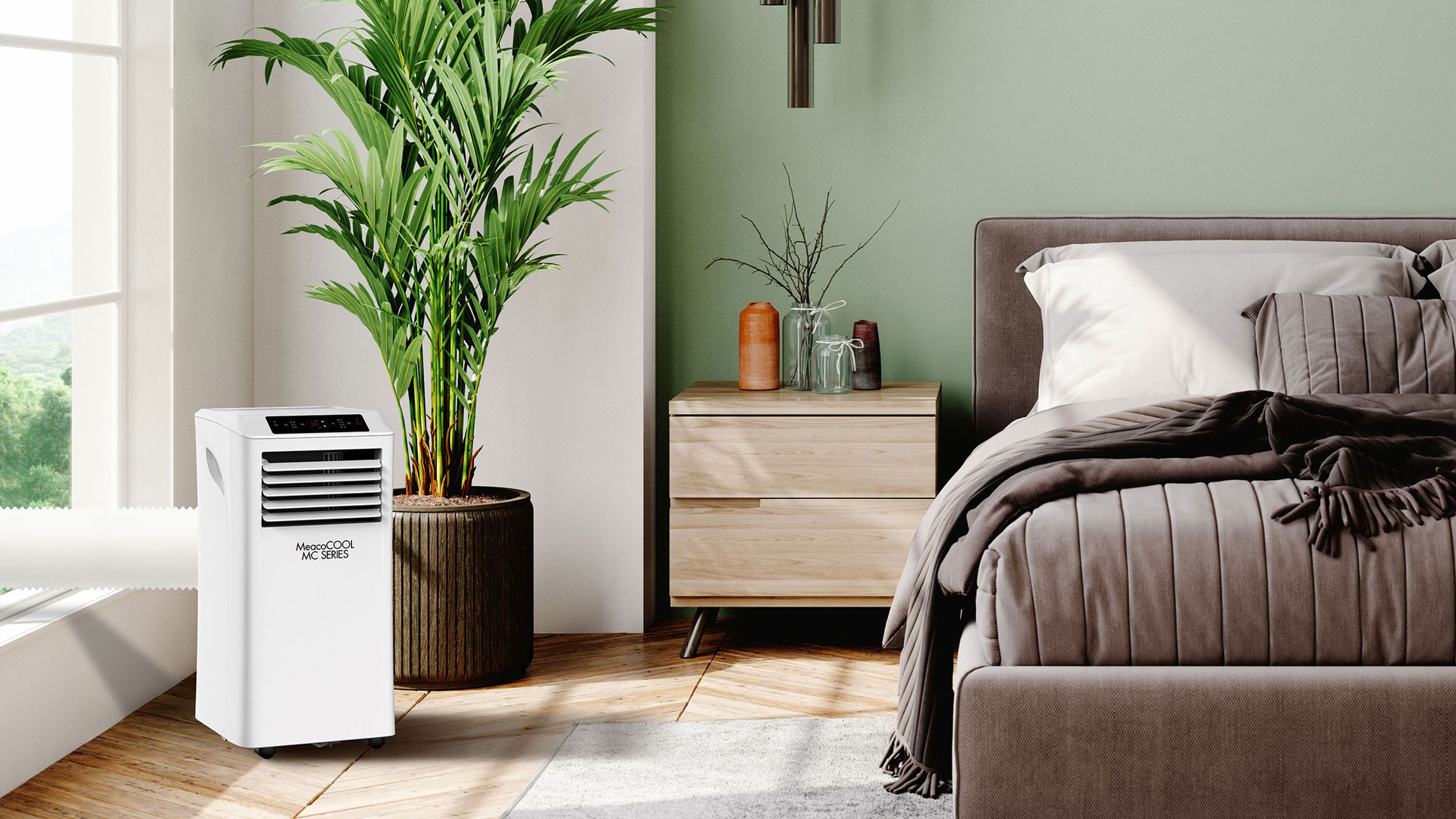
Portable air conditioning units can make sleeping during heatwaves much easier
"Portable air conditioners are a decent alternative if you’re renting or can’t commit to installation," further advises Stephen Day. "They cost less upfront, and you can move them between rooms." Portable units are a quicker fix for helping to sleep in the heat.
"But they come with compromises: they’re noisier (around 50 dB), bulkier, and generally only suitable for small to medium-sized rooms. You also need to vent them properly (usually via a window) to avoid inefficiency.
"Ducted systems, while still rare in the UK, are worth mentioning for new builds or major renovations," explains Stephen. "These central systems distribute air throughout the house via hidden ducts, offering seamless comfort, but they come at a significantly higher price and require careful planning."
How much does air conditioning cost?
This depends on the system you choose. Multi-split systems are the most expensive, while portable systems are the cheapest to buy, and don't incur any installation charges – perfect if you just want to know how to keep cool in summer.
"Costs vary based on model and cooling capacity," picks up Stephen Day. "A professionally installed split system typically costs £1,500-£2,500 per room, depending on the model and complexity, while multi-split systems for several rooms can range from £3,000-£9,000."
"Running costs are around 20-49p per hour for split systems, and while portable units come in cheaper upfront (£300-£500), they may cost more to run long-term as they’re less efficient."
FAQs
What size portable air conditioner should I get?
While not quite as effective, more expensive to run and noisier that built-in air conditioning units, portable air conditioners are actually a really good option for UK homes, so don't rule them out just yet.
"If you want something a little more powerful than a fan but don’t want to commit to a full install, portable air conditioners are a brilliant middle ground," explains Stephen Day. "They’re especially useful in bedrooms, home offices, or spare rooms.
"When choosing one, check the BTU rating carefully: roughly 8,000-10,000 BTUs will cool a small room, but larger spaces may need 12,000-15,000 BTUs," continues Stephen. "Look for models with sleep modes or eco settings to reduce noise and running costs at night."
Shop the best portable air conditioners
Still on the fence about whether or not to invest in air conditioning? It is well worth looking into air conditioner vs dehumidifier. Stephen Day has some final words of wisdom.
"One thing many people overlook is that modern AC units are not just for cooling anymore," he points out. "Most offer heating and dehumidifying functions, meaning you’re investing in year-round climate control, not just a few weeks of summer comfort.
"If you’re already spending £300-£500 each summer on temporary fixes, things like multiple fans, portable coolers, blackout blinds, or even desperate hotel stays during heatwaves, it’s worth considering whether a permanent, efficient solution might actually save you money and stress over time."

Natasha Brinsmead is a freelance homes and interiors journalist with over 20 years experience in the field. As former Associate Editor of Homebuilding & Renovating magazine, Natasha has researched and written about everything from how to design a new kitchen from scratch to knocking down walls safely, from how to lay flooring to how to insulate an old house. She has carried out a number of renovation projects of her own on a DIY basis and is currently on the lookout for her next project.
You must confirm your public display name before commenting
Please logout and then login again, you will then be prompted to enter your display name.
